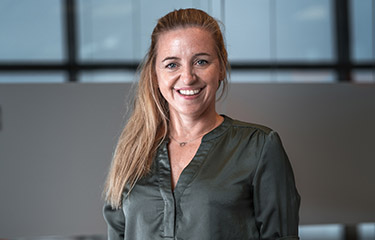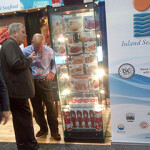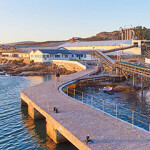Marks and Spencer, Optimar leading charge on improving seafood industry's animal welfare practices

Marks and Spencer Aquaculture and Fisheries Manager Linda Wood is on a mission to use technological innovation to improve the treatment of marine animals eaten for food.
At a recent three-day seminar in Norway held jointly with Optimar, a seafood technology company based in Valderøya, Norway, Wood said it is imperative that better animal welfare standards are implemented across the seafood industry.
“Animal welfare is fast becoming a top priority for consumers, and they expect us as retailers to get it right. Even the smallest shrimp deserves humane handling,” Wood said.
The aim of the seminar was to activate the retail supply chain to make changes and to work towards developing and implementing best practice standards.
“The way I see it, there’s really no reason why everyone shouldn’t be putting animal welfare at the top of their agenda,” Wood said.
Wood and Optimar Sales Manager Mårten Jørgensen came up with the idea of a seminar after meeting at Seafood Expo Global in Barcelona in 2022, where Wood was introduced to the wide range of species covered by Optimar’s inline stunning technology. Wood had first come across Optimar stunners at a lobster factory in Prince Edward Island, Canada.
“Using an electrical stunner on the processing line ensured that animal welfare was key. In turn, this reflected in an improvement in product quality and a safer handling experience for the operators,” she said.
Keen to take some of the retailer’s suppliers to Norway to see processing lines in action, Wood worked with Optimar Marketing Manager Jannicke Valderhaug, who put together a panel of experts from local fisheries and aquaculture companies.
“Everyone I contacted was keen to come onboard to share their knowledge and experience,” Valderhaug said.
Valderhaug said it is an established scientific fact that all animals – including fish – experience fear and attraction in similar ways to humans.
“It is proven for example, through the handling of live fish, that there is a significant impact on how the individuals behave afterwards and these behaviours we can and should relate to,” she said.
The seminar included a visit to Salmon Evolution’s land-based farm, Vikenco’s salmon slaughter and processing facility, and Hofseth International’s processing plant. Also included were talks from scientists from Nofima, the Institute of Marine Research, the Swedish University of Agricultural Sciences, and from raw material suppliers.
Wood and Valderhaug both said it was productive to bring together a group of industry representatives with the shared mission of improving seafood welfare.
“The best part of the week was the time we had for in-depth discussions, for challenging each other, and for focused questions,” Valderhaug said.
Valderhaug said she hopes to host a similar type of seminar in 2024. She said a sharper focus on humane slaughter will keep the industry “on its toes.” Optimar is already working with universities and academia to test electrical stunners for use on a number of different species.
“Industry as a whole can definitely do better in the processing of fish and shellfish. There are many good exemplars, but it is not universal, and I believe that our company will play an increasingly important part in the future,” Valderhaug said.
Valderhaug also highlighted the work of the Shrimp Welfare Project, which is financing the supply of an electrical stunner for a medium-scale shrimp farmer in Honduras and which aims to work with more farmers over the next couple of years. The project was set up to help improve the lives of the four billion or so shrimp that are farmed around the globe each year, which is more than five times the total number of all farmed land animals, according to Shrimp Welfare Project Founder and CEO Andrés Jimenez Zorilla.
“The aim is for the stunner to be used as a demonstration tool in a commercial operation. This will enable other shrimp farmers to see the benefits in terms of humane handling, improved quality, and also greater access to markets,” Zorilla said.
Wood said she’s eager to foster the relationship between technology firms, seafood-processing companies, and other actors inside and outside of the seafood industry to innovate …
Photo courtesy of Optimar




Share